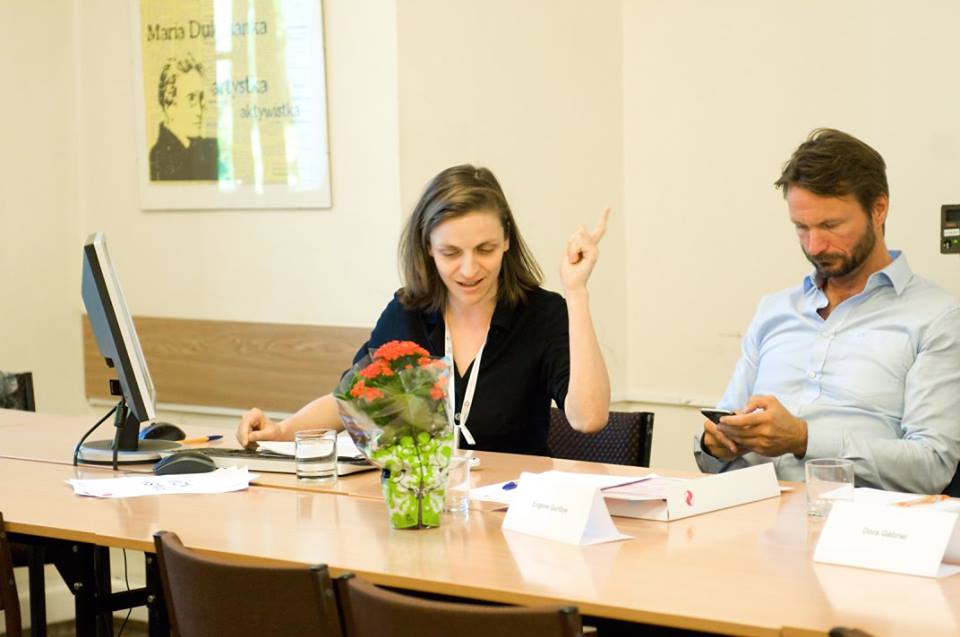Who won Polish Tranformation
The Polish transformation was/ and still is a local version of Structural Adjustment Programmes (introduced by World Bank and Monetary Fund) with all consequences known all over the world. The cutbacks in expenditures on health services and education hit woman with double power. They not only lost jobs in the most feminized fragments of labour market, but also variety of state's tasks and responsibilities in the care, health, or education were moved into private sphere. Now there are family problems, which means in everyday life problems of women. They – as research stated – are responsible now for care of the elderly and disabled or diseased members of family. In such context questions on gender consequences of neoliberal reforms are raised. New system without doubts resulted in new opportunities for educated and wealthy woman, but on the other hand it caused huge inequalities among woman from different classes and social groups.
Poland paid lip service to formal (de jure) gender equality (by including sex equality provisions in the new constitution or assuming international human rights treaty obligations including the CEDAW), but gender equality as a theory and practice faces two distinctive sets of political/cultural forces seeking to undermine and delegitimize women's rights. One set consists of conservatives, populist nationalists, and traditional religious institutions. We describe them as a ‘backlash trinity' (the backlash trinity's opposition gender equality resulted in delegitimazation it politically, legally, and culturally). The other set consists of neo-liberals. They support allegedly neutral economic policy prescriptions which, in fact, have significant political, legal, social and cultural discriminatory consequences for women. By redefining social and ethical life in accordance with economic criteria and expectations, neo-liberalism endorses market exchange as a guide for all human actions. Freedom (rather than justice or equality) is its fundamental political value. Government's role, then, is limited to the protection of the competitive behaviour of economically rational individuals (who) provide for their own needs and service their own ambitions.
On the one hand, the transformation created new possibilities for women to participate in the public sphere and labour market, gave them the language of rights and started the discussion about the role and place of women in society. On the other hand, despite the fact that the situation of women has been improving, the model adopted in Poland didn't lead to gender equality. As the researches show, women didn't benefit from the transformation as far as the participation in the labour market, political and public sphere are concerned. The main areas were also summarized in a more detailed way to show that:
- The employment rate is lower among women than man.
- Women are more likely to work part time.
- Women are prone to unemployment (especially long-term unemployment) than men and they are also believed to cope better with the unemployment than men.
- There is horizontal and vertical segregation in the labour market.
- The salaries paid to man and woman who are on the same/similar position are also different: man can earn 1/3 more than woman (gender wage gap).
- Feminization of poverty.
- The retirement pension is lower for women.
- Insufficient number of kindergartens and high fee for kindergartens create new barriers for poor families and especially women.
- Presidential election: since the collapse of communism in Poland, we had 61 candidates for a president in 5 elections (1990, 1995, 2000,2005,2010) out of which we had only 2 women.
- Only 1 women as the Prime Minister.
- Ministers (1998-2009): 395 but only 35 women.
Trying to look at the perspectives of change in the future, it is reasonable to analyze how the development programmes for Poland are going to reflect the issues of gender equality. In Poland 2030. Development Challenges. A Long-term Strategy of Developing Poland, Polish government identifies, describes, offers diagnosis in the key areas of developmental challenges and designs Poland's path of development by recommending directions of state policy in response to these challenges. But from the feminist critique point of view, the document has rather anti-democratic change resulting character and will reinforce the existing inequalities, caused by the neoliberal assumptions such as:
- all social life dimensions relying on the economic rationality (despite mentioned above failure and discreditation of such ontology in social and political thinking),
- fragmenting and reducing citizens to utilitarian roles and functions,
- withdrawal from the human rights discourse into "claim, demands and privileges" language,
- blaming marginalized groups for the situation of exclusion and shifting the responsibility for getting through into the forces of "society"
- progressive state's withdrawal from the public sectors and welfare state policies
- transferring the cost of the developmental change into the weakest and already unprivileged.
From the gender equality lens perspective, Poland 2030 is going to intensify inequalities and existing discrimination practices, and in case of women, the crucial areas of omission must be emphasized: equality and anti-discrimination social education programmes; diagnosis and counteraction for the pre-existing inequalities on the labour market; economic review of the women's role as "care-securers" and in parenting duties organization and its consequences; and consideration of such domains of women/s experience like violence or poverty. There is a need for continuous and persistent critique perspective on states politics, struggling against neoliberal framework which ignores multidimensional character of exclusion of men and women, especially its interconnections to socioeconomic status.


